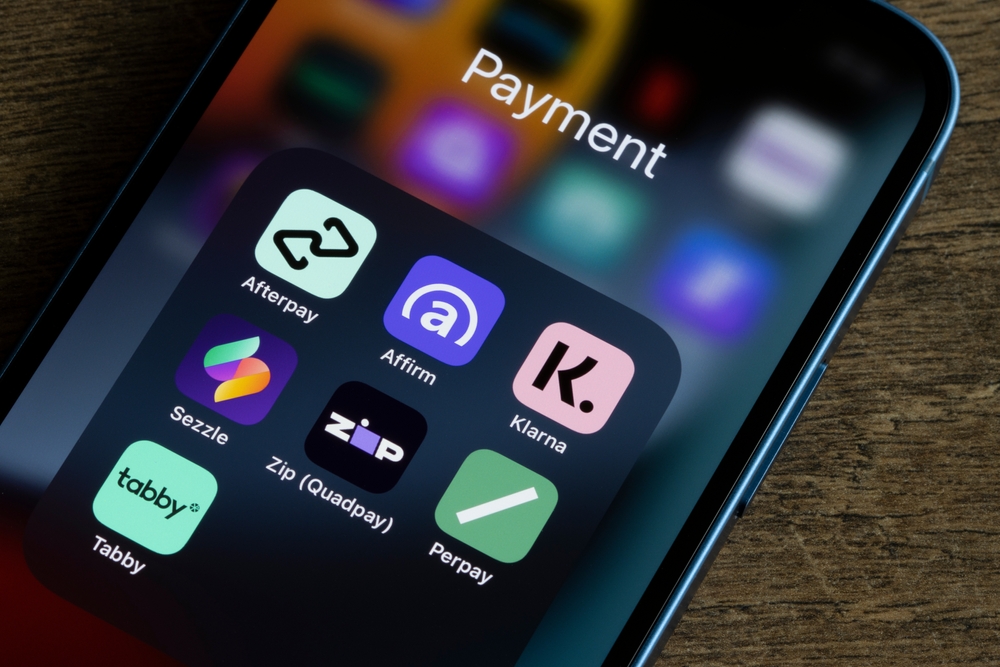Briana Gordley was a student with no credit history living on an annual income of $15,000 when she first heard about a service called “Afterpay.” She had recently moved to Lexington, Kentucky for college and needed a heavy coat to get through the winter–something she wasn’t used to growing up in Texas. The service split her bill into four installments, allowing her to afford the much-needed jacket: She had no concept of the fact that, two years later, she would be sitting in the US Senate testifying about her experience.
Early this year, major financial publications including Bloomberg reported on the “explosion” of the Buy Now, Pay Later (BNPL) industry, with half of all US consumers having used the service and billions of dollars in “phantom debt” being accumulated yearly.
“Buy Now, Pay Later” refers to financial products that enable users to split up the cost of any item purchased through partner merchants into several interest-free, short-term installments.
In May, The Consumer Financial Protection Bureau passed extensive new regulations requiring the industry to align more closely with the standards followed by credit card providers. The regulations include requirements for BNPL companies to disclose fees upfront, provide periodic statements, and allow users to dispute transactions.
Midtown now has hundreds of retailers that offer BNPL, including Target, Zara, H&M, Adidas, and Sephora.
Now, with the first holiday shopping season since the CFPB’s intervention about to begin, Midtown consumers are set to be exposed to countless opportunities to shop above their means in a brand-new regulatory environment.
“I had no idea what I was getting myself into. I just was excited to use a product that could help me buy things that I wouldn’t be able to afford outright,” said Gordley of the BNPL purchase in 2018, back when the industry was relatively new and unregulated. The excitement led her to use Afterpay, its competitor Klarna, and a few other smaller players simultaneously. “That really is when it started to spiral out of control,” Eventually, she lost track of her purchases, leading her to miss payments and accrue about $300 in late fees – half her rent. She was then referred to a debt collection agency, and had to ask her family to help pay the bill.
Research from Bank of America shows that the majority of Buy Now, Pay Later users are young Millennials and Gen Zers from low-to-middle-income households, like Gordley, mostly Black and Latino, and earning less than $50k per year. The study also found that BNPL “may induce customers to… spend more than they otherwise would have,” – a fact that both Afterpay and Klarna openly boast on the sections of their websites designed for merchants.
Over 70% of BNPL applicants are approved according to the CFBP. “That’s very high…that’s higher than credit cards, ” observed Nadine Chabrier, a policy expert at the Center for Responsible Lending. BNPL users “have increased overdraft fees, increased credit card use – then there’s signs of financial harm and financial distress.”
Despite her experience, Gordley does not outright discourage the use of BNPL platforms: “They can provide a benefit to people… but without effective regulation, they just become another cycle of debt.”
Chabrier said she expects “positive changes among BNPL companies now that they’ve been reminded what their obligations are.” But Martha Perez-Pedemonti, a consumer rights attorney at Public Citizen, says Gordley is precisely the type of consumer that BNPL retailers are trying to attract. “What I really think is happening here is that these products are targeting consumers who might not be able to afford these large ticket items,” she said.
Afterpay, likely the best-known brand in the space, charges merchants a flat fee of $0.30 per transaction plus a portion of each sale ranging from 4-6%. Consumers who miss payments are charged substantially more – late fees can go up to 25% of the order value, with a maximum of $68 per transaction.
“These companies end up relying on these late payments or these higher APRs to make more of an income,” said Perez-Pedemonti. “I think that they’re extremely aware of the risks …and they hide them in their terms of service.”Charlie Youakim, the CEO of Sezzle Inc. – a public BNPL company currently valued at around 850 million USD, disagreed: “Quite frankly, I think most consumers now would complain there are too many disclosures.”
The National Retail Federation (NRF) estimates that about 20% of annual retail sales take place during the winter holidays. This season will mark the first holiday shopping spree since the new policies passed by the Consumer Financial Protection Bureau went into effect, with Adobe Analytics projecting $18.5 billion worth of BNPL spending in Q4, an 11.4% increase compared to last year.
Youakim found the new regulations to be largely redundant with regard to his company, but does not oppose them: “Our view is, you know, we’ll just do it. It’s required.”
Today, Briana Gordley is leveraging her experience as a policy analyst working on Texas Appleseed’s fair financial services project, which advocates for “just and equitable solutions to problems that negatively impact the financial well-being of Texans.” Her public advocacy and testimony to the US Senate Banking Committee in 2022 contributed to the CFBP’s actions: “I think people now are…a little bit better off than they were before because of this new regulatory space.”
Representatives for Klarna did not respond to a request for comment.
A representative for Afterpay declined to speak on the record.


